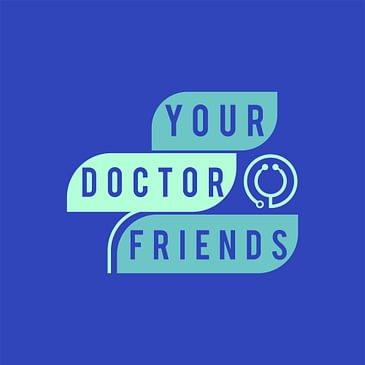Have you FELT THE BURN?? Heartburn, that is. It's THE WORST.
“Heartburn” typically refers to an uncomfortable burning sensation in the stomach and chest, which can occur after eating. The medical terms for heartburn are “GERD (gastroesophageal reflux disease)”, “pyrosis” and “dyspepsia”. Heartburn is super common, can be terribly uncomfortable, and can sometimes be a sign of more serious issues.
Thankfully in most cases, heartburn symptoms can be relatively easily addressed, and their root cause treated effectively.
We continue our "Series on Symptoms"- where we take a deep dive into common symptoms that we experience, why they exist, and what to do about them.
In this episode we cover:
What causes heartburn? What is acid reflux?
What is actually happening in our bodies when we experience these symptoms?
What are evidence-based treatments for heartburn?
What are risk factors for heartburn?
When should I seek urgent medical care (i.e. call my healthcare provider, go to the ER)?
Can chronic heartburn lead to other problems?
Our bodies are often trying to tell us things, but our symptoms are often spoken in code, so we may need a little “decoding” from time to time to understand them and respond to them effectively!
For more episodes, limited edition merch, or to become a Friend of Your Doctor Friends (and more), follow this link!
Also, CHECK OUT AMAZING HEALTH PODCASTS on The Health Podcast Network
Find us at:
Website: yourdoctorfriendspodcast.com
Email: yourdoctorfriendspodcast@gmail.com
Call the DOCLINE on 312-380-5005 and leave us a message. We will listen and maybe even respond/play it on the show!
(Disclaimer: we will not answer specific medical questions or offer medical advice. Consult your healthcare professional with any and all personal health questions.)
Connect with us:
@your_doctor_friends (IG)
@yourdoctorfriendspodcast1013 (YouTube)
@JeremyAllandMD (IG, FB, Twitter)
@JuliaBrueneMD (IG)
@HealthPodNet (IG)


